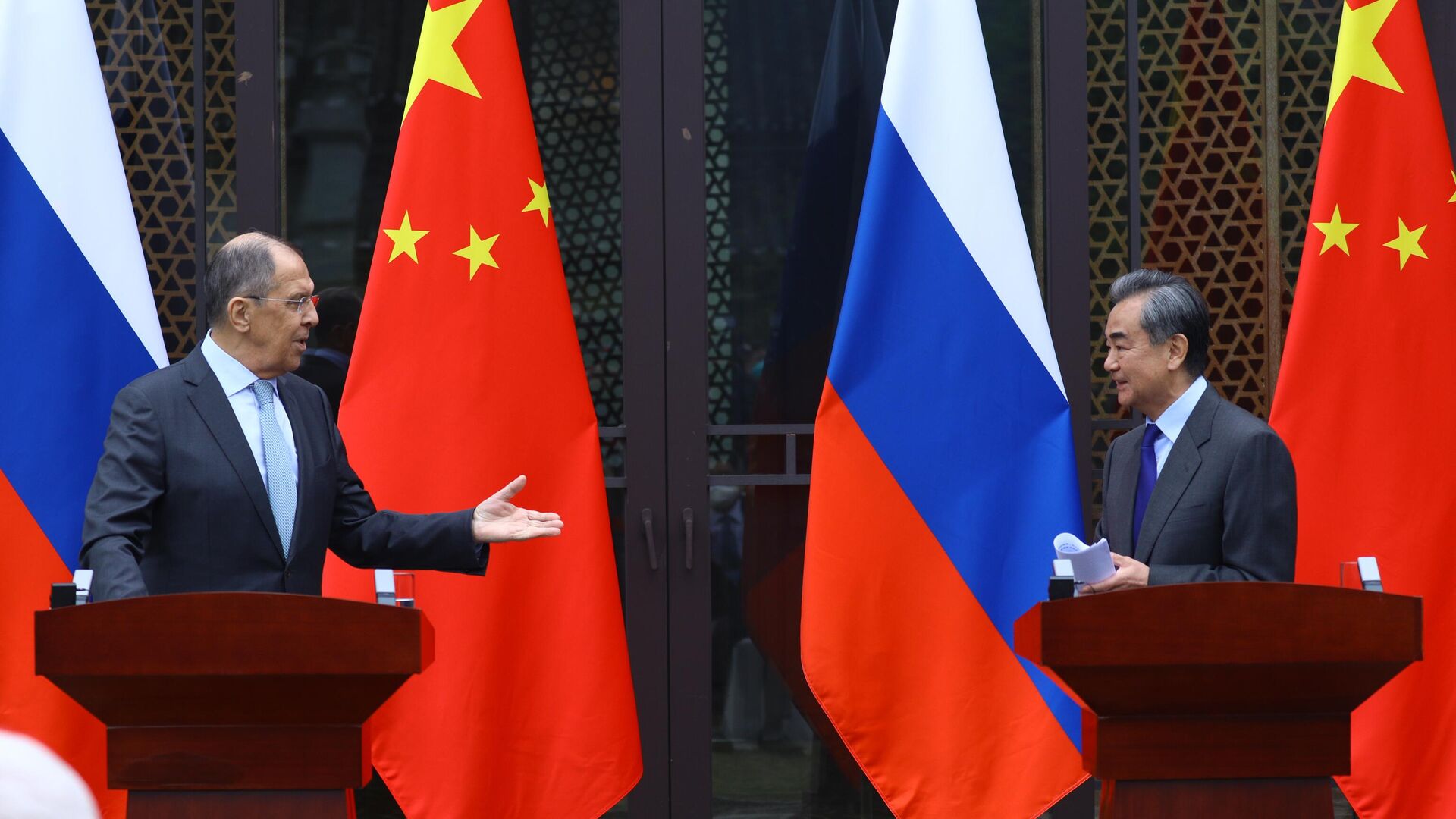https://sputnikglobe.com/20220330/china-outburst-of-ukraine-crisis-stems-from-long-lasting-differences-over-security-in-europe-1094323041.html
China: 'Outburst' of Ukraine Crisis Stems From Long-Lasting Differences Over Security in Europe
China: 'Outburst' of Ukraine Crisis Stems From Long-Lasting Differences Over Security in Europe
Sputnik International
According to the Chinese Foreign Minister, it is necessary to build an effective and sustainable security system in Europe through dialogue and negotiations. 30.03.2022, Sputnik International
2022-03-30T11:16+0000
2022-03-30T11:16+0000
2022-03-30T12:27+0000
russia's special operation in ukraine
ukraine
china
russia
https://cdn1.img.sputnikglobe.com/img/07e6/03/1e/1094325821_0:160:3073:1888_1920x0_80_0_0_ec4a6363c7b17ac002b17259400f6ea2.jpg
The 'outburst' of the Ukraine crisis has stemmed from long-lasting differences that have existed between different countries concerning the security system in Europe, the Chinese Foreign Minister Wang Yi said during a press conference after the talks with his Russian counterpart Sergey Lavrov in China on Wednesday. The Chinese minister added that Beijing welcomes the first results that were achieved during the Russian-Ukrainian talks in Istanbul on Tuesday and supports the continuation of the negotiations aimed at de-escalating tensions in Ukraine. "We support the efforts being made by Russia and all other sides to avert a full-scale humanitarian crisis," the Chinese top diplomat said, as quoted by the ministry.According to Wang Yi, it is necessary to build an effective and sustainable security system in Europe.The Russian top diplomat is currently on a two-day visit to China to take part in the third ministerial conference of Afghanistan's neighbouring countries and the expanded troika on Afghanistan (Russia, China, Pakistan and the US).The geopolitical situation has changed dramatically since the beginning of Russia’s special military operation in Ukraine on 24 February. As Russian President Vladimir Putin has repeatedly explained, Moscow had to begin the operation after all diplomatic means to settle the conflict between Kiev and the Russian-speaking Donbass region were exhausted. Putin said that the operation was aimed at protecting civilians in Ukraine's breakaway republics of Donetsk and Lugansk (which were recognized by Russia as sovereign nations on 21 February) and also to demilitarise and de-Nazify the entire Ukrainian territory since numerous radical neo-Nazi armed groups had been operating there and presented a serious threat to Russian-speaking population.The operation also followed months of ineffective negotiations between Moscow and the West about NATO's eastward expansion (including prospects for Ukraine's membership in the bloc) which Russia has always categorically rejected as a threat to its national security.
https://sputnikglobe.com/20220329/split-alliance-nato-states-reportedly-cant-agree-on-approach-towards-putin-ending-ukraine-crisis-1094298988.html
ukraine
china
Sputnik International
feedback@sputniknews.com
+74956456601
MIA „Rossiya Segodnya“
2022
News
en_EN
Sputnik International
feedback@sputniknews.com
+74956456601
MIA „Rossiya Segodnya“
Sputnik International
feedback@sputniknews.com
+74956456601
MIA „Rossiya Segodnya“
ukraine, china
China: 'Outburst' of Ukraine Crisis Stems From Long-Lasting Differences Over Security in Europe
11:16 GMT 30.03.2022 (Updated: 12:27 GMT 30.03.2022) According to the Chinese Foreign Minister, it is necessary to build an effective and sustainable security system in Europe through dialogue and negotiations.
The 'outburst' of the Ukraine crisis has stemmed from long-lasting differences that have existed between different countries concerning the security system in Europe, the Chinese Foreign Minister Wang Yi said during a press conference after the talks with his Russian counterpart Sergey Lavrov in China on Wednesday.
"The Ukrainian issue has a rather complicated history, it is not only the result of the contradictions accumulated over many years about the European security system but also the Cold War mentality and confrontations between different blocs."
Wang Yi
Chinese Foreign Minister
The Chinese minister added that Beijing welcomes the first results that were achieved during the Russian-Ukrainian talks in Istanbul on Tuesday and supports the continuation of the negotiations aimed at de-escalating tensions in Ukraine.
"We support the efforts being made by Russia and all other sides to avert a full-scale humanitarian crisis," the Chinese top diplomat said, as quoted by the ministry.
According to Wang Yi, it is necessary to build an effective and sustainable security system in Europe.
"From an long term perspective, lessons should be learned from the Ukrainian crisis; relying on the principles of mutual respect and indivisibility of security, it is necessary to respond to the legitimate concerns of all parties in the security sphere, and build a balanced, effective and sustainable European security system through dialogue and negotiations and achieve long-term order and long-term stability in Europe," Wang Yi said after the talks with his Russian counterpart Sergey Lavrov.
The Russian top diplomat is currently on a two-day visit to China to take part in the third ministerial conference of Afghanistan's neighbouring countries and the expanded troika on Afghanistan (Russia, China, Pakistan and the US).
The geopolitical situation has changed dramatically since the beginning of Russia’s special military operation in Ukraine on 24 February. As Russian President Vladimir Putin has repeatedly explained, Moscow had to begin the operation after all diplomatic means to settle the conflict between Kiev and the Russian-speaking Donbass region were exhausted. Putin said that the operation was aimed at protecting civilians in Ukraine's breakaway republics of Donetsk and Lugansk (which were recognized by Russia as sovereign nations on 21 February) and also to demilitarise and de-Nazify the entire Ukrainian territory since numerous radical neo-Nazi armed groups had been operating there and presented a serious threat to Russian-speaking population.
The
operation also followed months of ineffective negotiations between Moscow and the West about NATO's eastward expansion (including prospects for Ukraine's membership in the bloc) which Russia has always categorically rejected as a threat to its national security.



